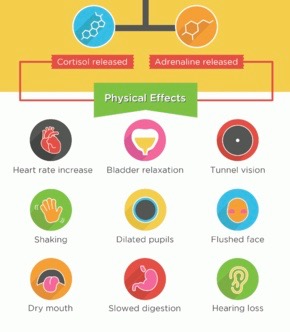When you put it that way...
"...a cerebral circuit of evil..."
...no, that is absolutely ridiculous (no offense).
In the human body (and generally in nature) there are only physical and biochemical mechanisms.
All behaviours that are described by the behavioural sciences (e.g. psychology) can be interpreted by biochemical mechanisms. For example, if you suddenly feel threatened then your heart rate will increase and you will feel the urge to either run away or get very aggressive and stay put. That's because a chemical reaction in your brain triggered the fight-or-flight response and cortisol is having a party with adrenaline and all your internal organs are invited.

You won't be a coward if you run away and not evil if you decide to fight... it doesn't matter how you were raised or what you believe in because even if you are a pacifist, you will try to protect yourself if you have to and chemistry is on your side.
The same principle applies to everything else, including
aggression which can be influenced by numerous hormones that themselves are influenced by numerous situations and of course genetics.
Biochemical mechanisms and pathways are very complex and they even overlap and interact with each other.
Here's a map of all the metabolic pathways to get an idea.
Now, when it comes to the complex human behaviour, you can imagine how difficult it is to put the pieces together.
Thought is not arbitrary or philosophical, it is pure chemistry! It's
just... not easy to understand, measure, describe, experiment with...
What Are Thoughts Made Of?
So in order to scientifically explain "evil" one has to take all knowledge we have on biochemistry and genetics and apply it to human behaviour. That's a very daunting task and concept to grasp, which if you want to do then you should walk in the path of neuropsychology and organic psychiatry while taking up physiology, biochemistry and genetics.
Finally, other keywords you're looking for are obedience and compliance.
The problem with those terms though is that they're a bit abstract when it comes to science. We haven't established any satisfying connection between them and the human brain.
